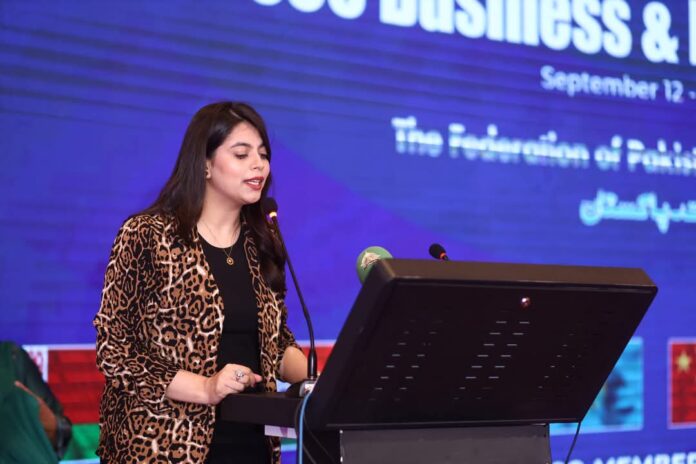- Advertisement -
By Andleeb Khan
ISLAMABAD, Feb 2 (APP):In Pakistan, the role of women is rapidly evolving. Traditionally, women were expected to manage homes and raise children, but today, they are making significant contributions across all sector, business, healthcare, education, technology, and more.
Women in Pakistan are excelling in fields once dominated by men, challenging stereotypes and redefining their roles in society.
Historically, women were primarily seen in professions like teaching or nursing. Today, they are forging paths in engineering, IT, and robotics.
Many have become successful pilots, doctors, lawyers, and leaders in creative industries like filmmaking, writing, and fashion design. Pakistani women are also breaking new ground in sports, with notable achievements in cricket, football, and athletics on international platforms.
This shift is driven by a changing societal attitude. As families grow more supportive and access to education improves, more women are entering a variety of professions.
Today, many women are running businesses, working in startups, and holding leadership roles across industries, contributing to a more progressive and inclusive future for the nation.
Quaid-e-Azam, Pakistan’s founder, emphasized that a nation cannot prosper without women playing an equal role in society. His vision from 1947 laid the foundation for women’s empowerment, but much remains to be done to bring that vision to life. While progress is being made, societal restrictions and gender discrimination still limit women’s full potential in Pakistan.
Although the global trend of women entrepreneurship is on the rise, the situation in Pakistan remains concerning. Women make up just 23-25% of the labor force, with only 1% being entrepreneurs.
Despite the increasing number of women earning university degrees, only 25% enter the workforce, reflecting a vast underutilization of talent.
Sana, a successful food blogger, talking to APP emphasized the importance of consistency for success. “Overnight success is unrealistic,” she says. “Hard work and perseverance are essential.” She believes food blogging empowers women by offering income opportunities and social freedom, with many women in Pakistan now earning through partnerships and sponsored posts, creating careers and global identities.
Fauzia Kalsoom Rana, Senior Producer for Spotlight with Munizae Jahangir on Aaj TV, also shared with this scribe her insights on succeeding in news production. “Identifying newsworthy stories and clear communication with the team are key,” she explains. Fauzia encourages women to be confident, assert their skills, and stand their ground when faced with condescending behavior. She stresses the importance of creating opportunities for women and embracing diverse perspectives.
Despite these successes, Pakistan continues to face significant barriers. According to the World Bank, female labor force participation is only 22.8%, one of the lowest in the world.
The deeply embedded patriarchal structure, where men are seen as breadwinners and women as homemakers, restricts women’s independence. Furthermore, women face discrimination, harassment, and challenges traveling to work, especially in rural areas.
Education is another critical obstacle. The United Nations reports that the literacy rate for women in Pakistan is only 57%, compared to 70% for men. Cultural beliefs, poverty, early marriage, and limited school infrastructure contribute to low enrollment and high dropout rates among girls. Without education and training, women are left without the skills needed for better-paying jobs or entrepreneurial ventures.
Ifrah Hameed, a graphic designer, in response to APP’s query how young woman can oot this profession shared her advice on success in the design industry.
“Master design principles, industry-standard software, and build an online presence,” she says. Ifrah notes that while there is still room for improvement, women’s representation in design is increasing, with many women leading their own design studios.
Fatima Nabeel, an 18-year-old entrepreneur from Lahore, shared how she started her business at 16 using her savings. “Young girls should step out of their comfort zones and aim for financial independence,” she says.
Fatima emphasizes the importance of breaking traditional norms and pursuing business opportunities early in life.
Mahnoor Qureshi, a broadcast journalist, has faced numerous challenges, including personal attacks and betrayal in her career. Despite these hurdles, she credits her family, especially her sister, for providing support.
“Strong family support is crucial for overcoming obstacles and achieving success,” she shares.
These stories illustrate the growing role of women in Pakistan’s development. Though challenges remain, women are defying societal expectations and carving out spaces for themselves in diverse fields. As they continue to break barriers, they are shaping a brighter, more equitable future for themselves and the nation.

